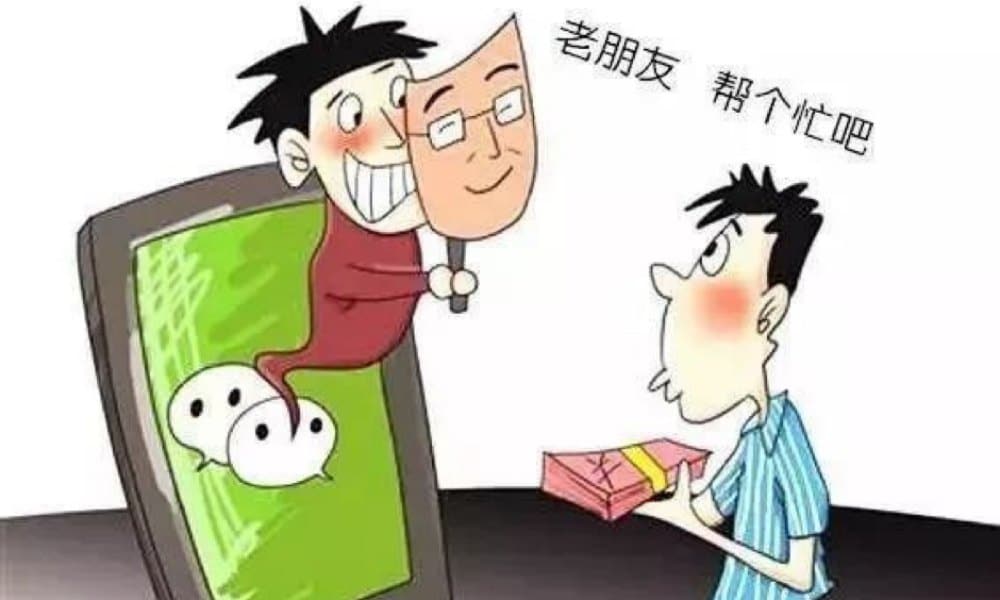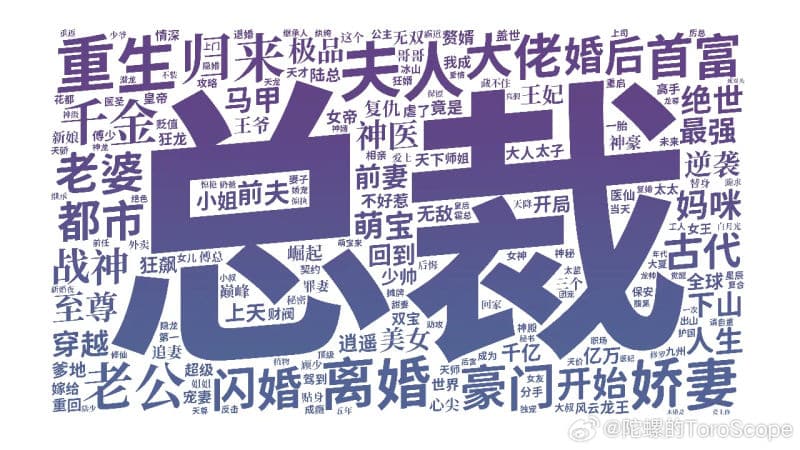China Digital
Top 8 Scams in China to Watch Out for (2018)
From oldskool scams to WeChat scams – people are still falling for this every single day.
Published
5 years agoon
By
Gabi Verberg
As times change, so do scams. In an age of smartphones and social media, Chinese scammers are more prone to abandon old tricks and use new technology for their swindling business. But in a time of more digital scams, there are also still scammers who use people’s inexperience and desperation to earn money by simply fooling them on the streets. Here’s a top 8 of 2018 [check out top 10 China scams in 2015 here].
With the rapidly increasing number of online transactions in China, the persisting problem of counterfeit money scams in China may now be less of a problem than it was before. But other scams are on the rise.
Although people are now less vulnerable to scams involving cash money, services as WeChat wallet and Alipay are also not without peril. Over the years, scammers have developed numerous ways to cheat people and steal money from WeChat or Alipay wallets.
From infecting smartphones with viruses, to letting people “voluntarily” hand over their personal information, scammers have found ways to trick people from all ages and all layers of society.
As a follow-up to an earlier top 10 we did on scams in China, What’s on Weibo has compiled a list of 8 scams that are recently trending on social media or in the Chinese newspapers.
#1 WeChat Scams: Hacking Accounts
With over 800 million users of WeChat Pay in China, WeChat users are a lucrative target for scammers. In recent years, there have been various cases of WeChat scams, in which hackers of private accounts pretend to be a friend or family member, and convince others to send them money.
Last summer, the news went viral of Chinese parents becoming a victim of scammers pretending to be their children.
These hackers, using the children’s accounts, told ‘their parents’ that they had to attend a special course or lecture, often held by professors from renowned universities such as Tsinghua or Beijing University. Once the scammer convinced the parent to pay for the extra curriculum activity, the scammers send the contact information of the “teachers” in charge of the event.
Once the parents added the “teachers'” to WeChat and transferred the money, the scammers continued to get parents to pay for all sorts of things such as service fees, registration fees, supply fees, etc.
In other more extreme examples, parents were asked to follow a link to complete the payment. The link installed a virus onto the parent’s phone, allowing the scammer to have full access to the victim’s WeChat wallet.
#2 Voice Scams: Imitation Champions
Another rising problem that China and many other countries are currently facing is the issue of so-called ‘voice scams.’ Often done through WeChat, scammers collect a person’s voice messages and then pretend to be this person by imitating his or her voice.
The scammers will then make a fake WeChat account that is an exact copy of the one they are imitating. They will contact family members and friends of the person they are imitating, and ask to borrow money. Because the voices sound so much alike, they often win the trust of people and get them to send the money.

Image via http://www.sohu.com/a/201988031_689129
In one extreme case, a young man’s voice was imitated so well that scammers were able to convince the man’s mother that her son was abducted. In a complete panic, the mother transferred the demanded ransom.
In all cases, the police advise people to always confirm face-to-face with the other person before sending money. Additionally, they also warn people should be on their guard sharing voice messages or any other form of personal information with strangers.
#3 Delivery Scams: Too Many Packages
As easy and convenient online shopping might seem, it is not without danger. Just as with WeChat scams, there are many ways in which scammers will try to find weak points within the system.
One of the issues that makes people more vulnerable to scams within the world of online shopping is that many people order so many products online, that they are more likely to believe that a package is theirs – even if they have never actually ordered it.
The most common online shopping scam involves “cash on delivery,” where the courier asks people to pay upon delivery. Once opening the packaging, people discover their package is actually empty.
In another version, scammers will first call the victim pretending to be their neighbor. They will ask them to do them a favor and accept a package, since they are not able to be home on time to accept it themselves. This way, people are even more likely to accept the package.
In yet another scam, often referred to as the “compensation scam,” scammers call customers and pretend to be employees of a delivery company. On the phone, they will tell that one of their carriers accidentally lost or damaged the ordered product and that they want to compensate for the loss. The only thing the victim has to do is to fill out an online “compensation form” for which personal information and bank information is required. With this information, the scammers can easily break into their victim’s bank account.
In some cases, scammers ask customers to add a WeChat account so they can be compensated for their ‘loss’. In the final step, they will require them to scan a QR-code, or click a link, and to transfer a small ‘service’ fee. Once they have transferred the fee, a virus will be installed on their phone, allowing the scammers to access their WeChat wallet.
Delivery companies advise their customers not to accept any package if they are not sure they have actually ordered it. With cash delivery packages, customers are advised to always check the package before sending the courier away.
About lost or damaged packages: delivery companies will never ask you to fill out a compensation form or share any personal or bank information. In case the delivery company loses or damages your order, the company you bought it from will then inform you and transfer the money back to your bank account.
#4 Catching Red Envelopes
Snatching ‘red envelopes’, qiǎng hóngbāo (抢红包) in Chinese, originated from China’s long-standing tradition of giving red envelopes to children to celebrate the Chinese New Year.
However, as the tradition of giving red envelopes is transforming from offline to online, the new phenomenon of ‘snatching red envelopes’ has also become more ubiquitous.
Through WeChat, people can send red envelopes to a group of friends: the (few) people who are first in opening that envelope will then receive an amount of money. Companies often use this feature as a marketing tool.
Scammers also make use of this red envelope craze. The ‘red envelop scam’ starts with a message via one of one’s WeChat contacts, reading something like: “I just discovered a group and the host of the group is going crazy! He keeps sending red envelopes! Add yourself to the group and snatch some envelopes.” This message will often be followed by a message telling you that you will be rewarded money when you add more people to the group.
Within a few minutes, the group chat has added hundreds of people. As members increase, the group owner will encourage people to add more people to the group by keeping on sending red envelopes. In the meantime, the group owner will send out a message saying that the ones who already opened an envelope are registered. In case they do not add ten people to the group within 30 minutes they will be kicked out. As for those who add 20 people to the group within half an hour, they will be rewarded even more money.
This way, people will keep adding contacts to the group. And because it is not allowed to talk in the group, people are also not able to warn each other of its potential dangers, because, at this point, the red envelopes will actually change into QR codes – the group owner will post a message saying that his transactions surpassed the transactions limit of the day and that if people want to continue receiving money, they will have to scan the QR-code and pay the symbolic amount of one yuan ($0.14). If they do so, they are promised to be rewarded with a high amount of money.
Once these people pay the one yuan, they have been scammed: through the QR code, the scammers have installed a virus into their WeChat, allowing them to empty their WeChat wallet. There are many versions to this kind of “red envelope” and “free money” scams. To avoid being scammed, it is best to remember that there is no such thing as getting money for nothing – there’s always a price to be paid.
#5 Winning Lottery-Ticket Scam
For the “winning lottery ticket scam,” scammers play with people’s minds. And no matter how simple this trick may seem, it is a worldwide phenomenon.
The scam starts with the victim finding a lottery ticket that has intentionally been placed somewhere. Since the owner of the lottery ticket is nowhere to be found, most people finding the ticket then call the number registered on the ticket to find out whether or not the ticket won a price. And, of course, they are told that the found ticket is indeed a ‘prize-winning’ ticket.
Because people, at this point, are so excited about their unexpected ‘luck’, they often no longer keep their mind straight. The scammer on the phone will inform the lucky finder that they only need to pay a handling fee before they can receive their prize money.
In some cases, the scammers even convince the victim to pay an income tax before receiving the prize money. Once the lucky winner paid the handling fee or income tax [via WeChat or Alipay], the connection will be cut off, and of course, the victim will never get the prize.
#6 Found Wallet Scam
You are walking outside, and suddenly you find a wallet on the streets – the owner is already out of sight. As you stand still with the wallet in your hand, a stranger comes up to you accusing you of stealing money from that found wallet.
It is a scam that frequently occurs in China, and it is easy to imagine that someone who just found a wallet might feel awkward about the situation, especially when accused of trying to steal the money inside of the wallet.

While explaining that they did not intend on trying to steal money, the stranger will intimidate the finder to give him some of the cash inside to settle the matter. Many people will do so in order to avoid a public scene.
But that is not the end of the scam, as the ‘owner’ of the wallet will then suddenly pop up, asking for his wallet, and discovering that some money inside is missing. The ‘finder’ will then compensate for that loss to get themselves out of the humiliating situation.
Obviously, the two men – the ‘bad guy’ demanding the money and the person who lost the wallet – work together in setting people up like this. Police advise people who find a wallet to turn it in at the closest police station.
Netease has reconstructed the scam on a video here.
#7 Fake Job Scam
One of the most common scams in China nowadays is the so-called “fake job scam.” Scammers will place fake job ads, and meet responders outside a company office for their ‘job interview.’
In most cases, the applicant is ‘hired’ immediately after the job interview. But before they can get to work, they first have to pass a medical test at a designated ‘research center.’ The victim is then told that he has to pay for the transportation and medical fees, and that the money will be reimbursed at the end of the first working month.
In many cases, victims also pay for service costs and forward a deposit for cards that allow them into the office, etc. When all these fees are paid, the ‘company’ can no longer be contacted and is suddenly untraceable.
To avoid people from getting tricked into these fake job scams, police advise to only reply to job ads with a registered phone number and official company address.
#8 Trap Loans: A Mountain of Loans
The problem of ‘trap loans’ has received much media attention in China over recent years. Earlier this year the story of one woman went viral; she borrowed 2,000 yuan ($292) and ended up with a 150,000 yuan ($21.872) debt two months later.
She is just of among many victims of China’s “trap loans.” In various other cases reported by the media, people end up in such huge debts and depression, that they take their own lives.
Scammers specifically target people who are temporarily short of cash. It often starts with an individual lender offering a quick loan, only for a few days, in the name of a small loaning company (小额贷款公司). Once the person tells the loaning company they need credit, a lender will come up with a contract that has blank spaces in them. The contract is often so long and complicated that people don’t read it through carefully enough.
When the contract is signed, the loaning company will insert extra information into the blank spaces of the signed contract. They will, for example, change the time you are allowed to borrow money, the interest rate, or the name of the lender.
In the next phase, the loaning company will purposely make the borrower breach the contract by, for example, temporarily being out of service or unreachable, so that the borrower is not able to pay off his debts as recorded in the agreement. They will then face the sum of accumulated interest on the borrowed money, and fines for overdue payments.
Around this time, the lender will introduce the borrowers to another loaning company where they can take out more loans to pay off the debts of the first contract. This can go on for many years and many contracts. The borrower will not be able to repay the entire sum of borrowed money, so keeps on paying huge interest rates and fines for overdue payments.
There have been reports of trap loans in various forms such as campus loans, where students are tricked into ‘easy money loans’ by on-campus advertisements; or naked loans, where scammers demand people to send a (partly) nude picture of themselves holding their ID as collateral. Often this photo will later be used to blackmail a person.
Want to read more? Also check out our previous ‘Top 10 Scams to Watch Out For in China‘.
By Gabi Verberg
Follow @whatsonweibo
Spotted a mistake or want to add something? Please let us know in comments below or email us.
©2018 Whatsonweibo. All rights reserved. Do not reproduce our content without permission – you can contact us at info@whatsonweibo.com
Gabi Verberg is a Business graduate from the University of Amsterdam who has worked and studied in Shanghai and Beijing. She now lives in Amsterdam and works as a part-time translator, with a particular interest in Chinese modern culture and politics.

China Arts & Entertainment
Going All In on Short Streaming: About China’s Online ‘Micro Drama’ Craze
For viewers, they’re the ultimate guilty pleasure. For producers, micro dramas mean big profit.
Published
1 month agoon
March 26, 2024By
Ruixin Zhang
PREMIUM CONTENT
Closely intertwined with the Chinese social media landscape and the fast-paced online entertainment scene, micro dramas have emerged as an immensely popular way to enjoy dramas in bite-sized portions. With their short-format style, these dramas have become big business, leading Chinese production studios to compete and rush to create the next ‘mini’ hit.
In February of this year, Chinese social media started flooding with various hashtags highlighting the huge commercial success of ‘online micro-short dramas’ (wǎngluò wēiduǎnjù 网络微短剧), also referred to as ‘micro drama’ or ‘short dramas’ (微短剧).
Stories ranged from “Micro drama screenwriters making over 100k yuan [$13.8k] monthly” to “Hengdian building earning 2.8 million yuan [$387.8k] rent from micro dramas within six months” and “Couple earns over 400 million [$55 million] in a month by making short dramas,” all reinforcing the same message: micro dramas mean big profits. (Respectively #短剧爆款编剧月入可超10万元#, #横店一栋楼半年靠短剧租金收入280万元#, #一对夫妇做短剧每月进账4亿多#.)
Micro dramas, taking China by storm and also gaining traction overseas, are basically super short streaming series, with each episode usually lasting no more than two minutes.
From Horizontal to Vertical
Online short dramas are closely tied to Chinese social media and have been around for about a decade, initially appearing on platforms like Youku and Tudou. However, the genre didn’t explode in popularity until 2020.
That year, China’s State Administration of Radio, Film, and Television (SARFT) introduced a “fast registration and filing module for online micro dramas” to their “Key Online Film and Television Drama Information Filing System.” Online dramas or films can only be broadcast after obtaining an “online filing number.”
Chinese streaming giants such as iQiyi, Tencent, and Youku then began releasing 10-15 minute horizontal short dramas in late 2020. Despite their shorter length and faster pace, they actually weren’t much different from regular TV dramas.
Soon after, short video social platforms like Douyin (TikTok) and Kuaishou joined the trend, launching their own short dramas with episodes only lasting around 3 minutes each.
Of course, Douyin wouldn’t miss out on this trend and actively contributed to boosting the genre. To better suit its interface, Douyin converted horizontal-screen dramas into vertical ones (竖屏短剧).
Then, in 2021, the so-called mini-program (小程序) short dramas emerged, condensing each episode to 1-2 minutes, often spanning over 100 episodes.

These short dramas are advertised on platforms like Douyin, and when users click, they are directed to mini-programs where they need to pay for further viewing. Besides direct payment revenue, micro dramas may also bring in revenue from advertising.
‘Losers’ Striking Back
You might wonder what could possibly unfold in a TV drama lasting just two minutes per episode.
The Chinese cultural media outlet ‘Hedgehog Society’ (刺猬公社) collected data from nearly 6,000 short dramas and generated a word cloud based on their content keywords.
In works targeted at female audiences, the most common words revolve around (romantic) relationships, such as “madam” (夫人) and “CEO” (总裁). Unlike Chinese internet novels from over a decade ago, which often depicted perfect love and luxurious lifestyles, these short dramas offer a different perspective on married life and self-discovery.
According to Hedgehog Society’s data, the frequency of the term “divorce” (离婚) in short dramas is ten times higher than “married” (结婚) or “newlyweds” (新婚). Many of these dramas focus on how the female protagonist builds a better life after divorce and successfully stands up to her ex-husband or to those who once underestimated her — both physically and emotionally.

One of the wordclouds by 刺猬公社.
In male-oriented short dramas, the pursuit of power is a common theme, with phrases like “the strongest in history” (史上最强) and “war god” (战神) frequently mentioned. Another surprising theme is “matrilocal son” (赘婿), the son-in-law who lives with his wife’s family. In China, this term is derogatory, particularly referring to husbands with lower economic income and social status than their wives, which is considered embarrassing in traditional Chinese views. However, in these short dramas, the matrilocal son will employ various methods to earn the respect of his wife’s family and achieve significant success.
Although storylines differ, a recurring theme in these short dramas is protagonists wanting to turn their lives around. This desire for transformation is portrayed from various perspectives, whether it’s from the viewpoint of a wealthy, elite individual or from those with lower social status, such as divorced single women or matrilocal son-in-laws. This “feel-good” sentiment appears to resonate with many Chinese viewers.
Cultural influencer Lu Xuyu (@卢旭宁) quoted from a forum on short dramas, explaining the types of short dramas that are popular: Men seek success and admiration, and want to be pursued by beautiful women. Women seek romantic love or are still hoping the men around them finally wake up. One netizen commented more bluntly: “They are all about the counterattack of the losers (屌丝逆袭).”
The word used here is “diaosi,” a term used by Chinese netizens for many years to describe themselves as losers in a self-deprecating way to cope with the hardships of a competitive life, in which it has become increasingly difficult for Chinese youths to climb the social ladder.
Addicted to Micro Drama
By early 2024, the viewership of China’s micro dramas had soared to 120 million monthly active users, with the genre particularly resonating with lower-income individuals and the elderly in lower-tier markets.
However, short dramas also enjoy widespread popularity among many young people. According to data cited by Bilibili creator Caoxiaoling (@曹小灵比比叨), 64.9% of the audience falls within the 15-29 age group.
For these young viewers, short dramas offer rapid plot twists, meme-worthy dialogues, condensing the content of several episodes of a long drama into just one minute—stripping away everything except the pure “feel-good” sentiment, which seems rare in the contemporary online media environment. Micro dramas have become the ultimate ‘guilty pleasure.’

Various micro dramas, image by Sicomedia.
Even the renowned Chinese actress Ning Jing (@宁静) admitted to being hooked on short dramas. She confessed that while initially feeling “scammed” by the poor production and acting, she became increasingly addicted as she continued watching.
It’s easy to get hooked. Despite criticisms of low quality or shallowness, micro dramas are easy to digest, featuring clear storylines and characters. They don’t demand night-long binge sessions or investment in complex storylines. Instead, people can quickly watch multiple episodes while waiting for their bus or during a short break, satisfying their daily drama fix without investing too much time.
Chasing the gold rush
During the recent Spring Festival holiday, the Chinese box office didn’t witness significant growth compared to previous years. In the meantime, the micro drama “I Went Back to the 80s and Became a Stepmother” (我在八零年代当后妈), shot in just 10 days with a post-production cost of 80,000 yuan ($11,000), achieved a single-day revenue exceeding 2 million yuan ($277k). It’s about a college girl who time-travels back to the 1980s, reluctantly getting married to a divorced pig farm owner with kids, but unexpectedly falling in love.
Despite its simple production and clichéd plot, micro dramas like this are drawing in millions of viewers. The producer earned over 100 million yuan ($13 million) from this drama and another short one.

“I Went Back to the 80s and Became a Stepmother” (我在八零年代当后妈).
The popularity of short dramas, along with these significant profits, has attracted many people to join the short drama industry. According to some industry insiders, a short drama production team often involves hundreds or even thousands of contributors who help in writing scripts. These contributors include college students, unemployed individuals, and online writers — seemingly anyone can participate.
By now, Hengdian World Studios, the largest film and television shooting base in China, is already packed with crews filming short dramas. With many production teams facing a shortage of extras, reports have surfaced indicating significant increases in salaries, with retired civil workers even being enlisted as actors.
Despite the overwhelming success of some short dramas like “I Went Back to the 80s and Became a Stepmother,” it is not easy to replicate their formula. The screenwriter of the time-travel drama, Mi Meng (@咪蒙的微故事), is a renowned online writer who is very familiar with how to use online strategies to draw in more viewers. For many average creators, their short drama production journey is much more difficult and less fruitful.
But with low costs and potentially high returns, even if only one out of a hundred productions succeeds, it could be sufficient to recover the expenses of the others. This high-stakes, cutthroat competition poses a significant challenge for smaller players in the micro drama industry – although they actually fueled the genre’s growth.
As more scriptwriters and short dramas flood the market, leading to content becoming increasingly similar, the chances of making profits are likely to decrease. Many short drama platforms have yet to start generating net profits.
This situation has sparked concerns among netizens and critics regarding the future of short dramas. Given the genre’s success and intense competition, a transformation seems inevitable: only the shortest dramas that cater to the largest audiences will survive.
In the meantime, however, netizens are enjoying the hugely wide selection of micro dramas still available to them. One Weibo blogger, Renmin University Professor Ma Liang (@学者马亮), writes: “I spent some time researching short videos and watched quite a few. I must admit, once you start, you just can’t stop. ”
By Ruixin Zhang, edited with further input by Manya Koetse
Independently reporting China trends for over a decade. Like what we do? Support us and get the story behind the hashtag by subscribing:
Spotted a mistake or want to add something? Please let us know in comments below or email us. First-time commenters, please be patient – we will have to manually approve your comment before it appears.
©2024 Whatsonweibo. All rights reserved. Do not reproduce our content without permission – you can contact us at info@whatsonweibo.com.
China Brands, Marketing & Consumers
Tick, Tock, Time to Pay Up? Douyin Is Testing Out Paywalled Short Videos
Is content payment a new beginning for the popular short video app Douyin (China’s TikTok) or would it be the end?
Published
5 months agoon
November 18, 2023
The introduction of a Douyin novel feature, that would enable content creators to impose a fee for accessing their short video content, has sparked discussions across Chinese social media. Although the feature would benefit creators, many Douyin users are skeptical.
News that Chinese social media app Douyin is rolling out a new feature which allows creators to introduce a paywall for their short video content has triggered online discussions in China this week.
The feature, which made headlines on November 16, is presently in the testing phase. A number of influential content creators are now allowed to ‘paywall’ part of their video content.
Douyin is the hugely popular app by Chinese tech giant Bytedance. TikTok is the international version of the Chinese successful short video app, and although they’re often presented as being the same product, Douyin and Tiktok are actually two separate entities.
In addition to variations in content management and general usage, Douyin differs from TikTok in terms of features. Douyin previously experimented with functionalities such as charging users for accessing mini-dramas on the platform or the ability to tip content creators.
The pay-to-view feature on Douyin would require users to pay a certain fee in Douyin coins (抖币) in order to view paywalled content. One Douyin coin is equivalent to 0.1 yuan ($0,014). The platform itself takes 30% of the income as a service charge.
According to China Securities Times or STCN (证券时报网), Douyin insiders said that any short video content meeting Douyin’s requirements could be set as “pay-per-view.”
Creators, who can set their own paywall prices, should reportedly meet three criteria to qualify for the pay-to-view feature: their account cannot have any violation records for a period of 90 days, they should have at least 100,000 followers, and they have to have completed the real-name authentication process.
On Douyin and Weibo, Chinese netizens express various views on the feature. Many people do not think it would be a good idea to charge money for short videos. One video blogger (@小片片说大片) pointed out the existing challenge of persuading netizens to pay for longer videos, let alone expecting them to pay for shorter ones.
“The moment I’d need to pay money for it, I’ll delete the app,” some commenters write.
This statement appears to capture the prevailing sentiment among most internet users regarding a subscription-based Douyin environment. According to a survey conducted by the media platform Pear Video, more than 93% of respondents expressed they would not be willing to pay for short videos.

An online poll by Pear Video showed that the majority of respondents would not be willing to pay for short videos on Douyin.
“This could be a breaking point for Douyin,” one person predicts: “Other platforms could replace it.” There are more people who think it would be the end of Douyin and that other (free) short video platforms might take its place.
Some commenters, however, had their own reasons for supporting a pay-per-view function on the platform, suggesting it would help them solve their Douyin addiction. One commenter remarked, “Fantastic, this might finally help me break free from watching short videos!” Another individual responded, “Perhaps this could serve as a remedy for my procrastination.”
As discussions about the new feature trended, Douyin’s customer service responded, stating that it would eventually be up to content creators whether or not they want to activate the paid feature for their videos, and that it would be up to users whether or not they would be interested in such content – otherwise they can just swipe away.
Another social media user wrote: “There’s only one kind of video I’m willing to pay for, and it’s not on Douyin.”
By Manya Koetse
Get the story behind the hashtag. Subscribe to What’s on Weibo here to receive our newsletter and get access to our latest articles:
Spotted a mistake or want to add something? Please let us know in comments below or email us. First-time commenters, please be patient – we will have to manually approve your comment before it appears.
©2023 Whatsonweibo. All rights reserved. Do not reproduce our content without permission – you can contact us at info@whatsonweibo.com.
Subscribe

Weibo Watch: The Battle for the Bottom Bed

Zara Dress Goes Viral in China for Resemblance to Haidilao Apron

“Old Bull Eating Young Grass”: 86-Year-Old Chinese Painter Fan Zeng Marries 36-Year-Old Xu Meng

Chengdu Disney: The Quirkiest Hotspot in China

Where to Eat and Drink in Beijing: Yellen’s Picks

The ‘Two Sessions’ Suggestions: Six Proposals Raising Online Discussions

Top 9 Chinese Movies to Watch This Spring Festival Holiday

Party Slogan, Weibo Hashtag: “The Next China Will Still Be China”

From Pitch to Politics: About the Messy Messi Affair in Hong Kong (Updated)

Looking Back on the 2024 CMG Spring Festival Gala: Highs, Lows, and Noteworthy Moments

Two Years After MU5735 Crash: New Report Finds “Nothing Abnormal” Surrounding Deadly Nose Dive

More than Malatang: Tianshui’s Recipe for Success

“Old Bull Eating Young Grass”: 86-Year-Old Chinese Painter Fan Zeng Marries 36-Year-Old Xu Meng

In Hot Water: The Nongfu Spring Controversy Explained

Chengdu Disney: The Quirkiest Hotspot in China
Get in touch
Would you like to become a contributor, or do you have any tips or suggestions? Get in touch here!
Popular Reads
-

 China Insight2 months ago
China Insight2 months agoThe ‘Two Sessions’ Suggestions: Six Proposals Raising Online Discussions
-

 China Arts & Entertainment3 months ago
China Arts & Entertainment3 months agoTop 9 Chinese Movies to Watch This Spring Festival Holiday
-

 China Media2 months ago
China Media2 months agoParty Slogan, Weibo Hashtag: “The Next China Will Still Be China”
-

 China World2 months ago
China World2 months agoFrom Pitch to Politics: About the Messy Messi Affair in Hong Kong (Updated)







David
June 4, 2019 at 7:21 pm
Thanks for sharing Gabi! was a very interesting read to see how the scams have been evolving haha. Perhaps to share one shared by the community at https://travelscams.org/asia/china/ a new one that is reported is the QR code scam. In essence it is similar to the “catching red envelopes” scam but done differently.
For this version, criminals paste their own QR code over the original ones by merchants (shops, bicycle sharing, etc). It is pretty much impossible to detect with the naked eye and in Guangdong alone, an estimated US$13 million was lost this way.